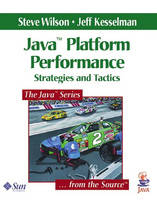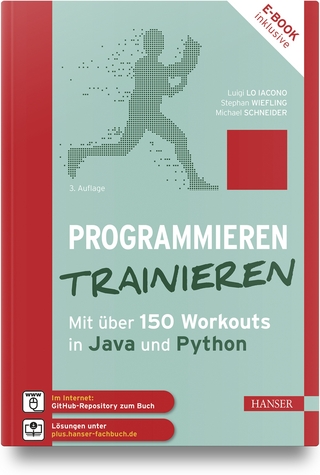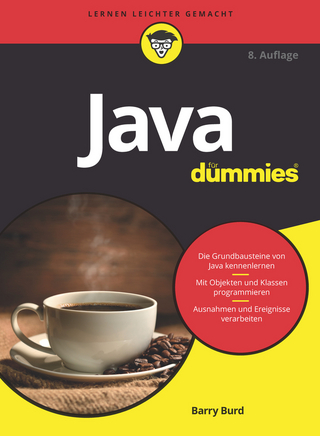
Wilson
Addison Wesley (Verlag)
978-0-201-70969-8 (ISBN)
- Titel ist leider vergriffen;
keine Neuauflage - Artikel merken
Direct from Sun's Java™ Performance Team, this is a comprehensive field manual full of battle-tested strategies and tactics for developing high-performance applications and applets with Java technology. It covers every aspect of Java performance, including speed, scalability, RAM footprint, startup time, and user-perceived performance factors. Part I covers the crucial process issues associated with Java optimization, outlining how performance tuning fits into the software development process, showing how to use benchmarks and profiling tools to identify hot spots and bottlenecks, and presenting general strategies for enhancing the performance of Java technology-based systems. In Part II, the authors present a wide array of concrete optimization techniques. The book contains detailed appendices on garbage collection and the Java HotSpot™ Virtual Machine, written to address key performance questions.
Steve Wilson is the Engineering Manager of the Java Performance Team at Sun Microsystems's Java Software unit. There he leads the team that is responsible for performance tuning of the Java™ 2 Standard Edition internals and helps third-party developers improve program code performance. Mr. Wilson previously worked as a member of the Swing team, which developed the Java Foundation Classes toolkit. Prior to joining Sun, he spent several years as an independent consultant specializing in object-oriented technologies. Jeff Kesselman is an engineer on the Java Performance Team at Sun Microsystems's Java Software unit where he works with various groups to improve Java code performance. Prior to joining Sun, he developed cutting-edge games for several PC and console platforms in the computer game industry. 0201709694AB04062001
Preface.
Introduction.
I: STRATEGIES.
1. What Is Performance?
Computational Performance.
RAM Footprint.
Startup Time.
Scalability.
Perceived Performance.
2. The Performance Process.
Developing a Performance Process.
References on Object-Oriented Design.
3. Measurement Is Everything.
Benchmarking.
Profiling.
Dealing with Flat Profiles.
II: TACTICS.
4. I/O Performance.
Basic I/O.
Serialization.
5. RAM Footprint.
Computing RAM Footprint.
What Contributes to Footprint?
Class Loading.
6. Controlling Class Loading.
Eager Class Loading.
Reducing the Number of Classes.
Running Multiple Programs.
7. Object Mutability: Strings and Other Things.
Lots of Little Objects.
Handling String Objects.
Mutable Objects in AWT and Swing.
Other Mutable Object Tactics.
Mutable Object Case Study.
Small Objects and the Modern JVM.
Array Mutability.
8. Algorithms and Data Structures.
Selecting Algorithms.
Using Recursive Algorithms.
Beyond Simple Algorithms.
Selecting Data Structures.
Collections Example.
References on Algorithms and Data Structures.
9. Using Native Code.
Native Graphics Example.
Examining JNI Costs.
Native Code Case Studies.
10. Swing Models and Renderers.
Swing's Component Architecture.
Scalable Components.
11. Writing Responsive User Interfaces with Swing.
Guidelines for Responsive GUIs.
Using Threads in Swing Programs.
Using Timers in Swing Applications.
Responsive Applications Use Threads.
Example: Searching the Web.
12. Deployment.
Compiler Options.
JAR Files.
Packaging Utilities.
Dynamic Downloading.
Appendices.
A. The Truth About Garbage Collection.
Why Should You Care About Garbage Collection?
The Guarantees of GC.
The Object Lifecycle.
Reference Objects.
References on Garbage Collection.
B. The Java HotSpot Virtual Machine.
HotSpot Architecture.
Runtime Features.
HotSpot Server Compiler.
X Flags.
XX Flags.
References.
Index 221. 0201709694T04062001.
| Erscheint lt. Verlag | 30.6.2000 |
|---|---|
| Verlagsort | Boston |
| Sprache | englisch |
| Maße | 197 x 234 mm |
| Gewicht | 390 g |
| Themenwelt | Informatik ► Programmiersprachen / -werkzeuge ► Java |
| Mathematik / Informatik ► Informatik ► Web / Internet | |
| ISBN-10 | 0-201-70969-4 / 0201709694 |
| ISBN-13 | 978-0-201-70969-8 / 9780201709698 |
| Zustand | Neuware |
| Haben Sie eine Frage zum Produkt? |
aus dem Bereich


